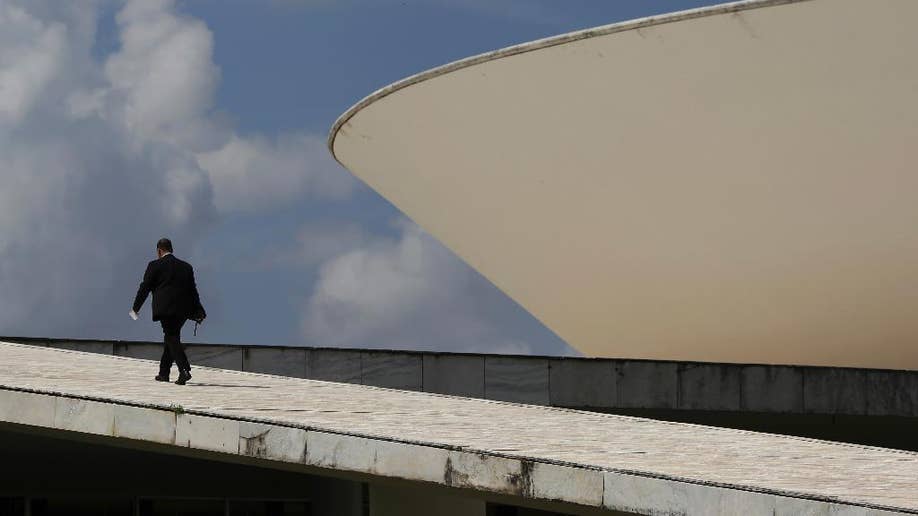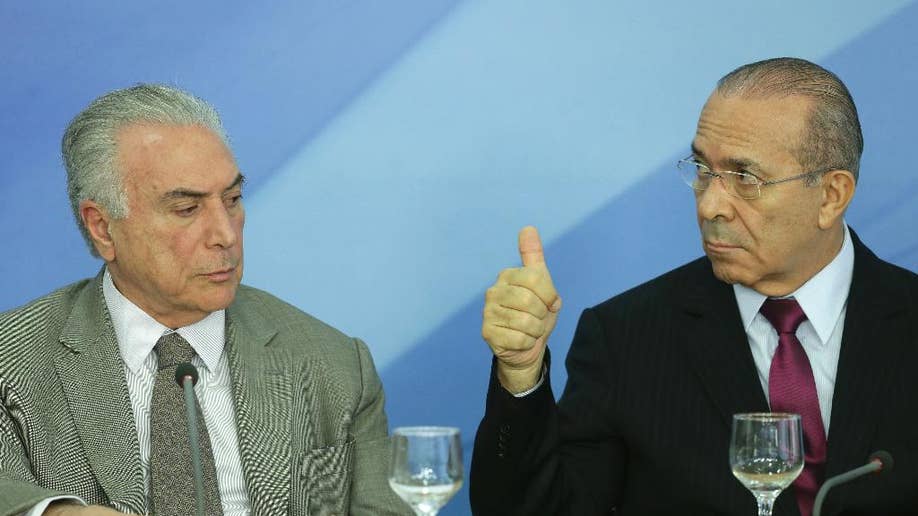Bribe department: How Brazil's Odebrecht organized graft
{{#rendered}} {{/rendered}}A secret communications system was used to discuss and arrange the payments of bribes. A detailed spreadsheet mapped out who got what, all veiled under a system of codenames. And overseeing it all, there was an entire department at the Brazilian construction giant Odebrecht whose only purpose was to ensure the graft ran smoothly.
Though deals were often sealed over dinners and coffees, there was nothing casual about the massive corruption scheme that Brazilian prosecutors are investigating involving bribes and kickbacks paid to hundreds of politicians in exchange for state contracts, beneficial legislation and other favors.
The Supreme Court opened investigations into about 100 politicians this week, based on testimony provided by current and former executives at Odebrecht. Their testimony describes how bribery and kickbacks were simply part of doing business.
{{#rendered}} {{/rendered}}"There was a rule: Either we don't contribute to anyone, or we contribute to everyone," explained Emilio Odebrecht, chairman of the board, referring to payments to politicians.
Odebrecht appears to have opted for the latter. Court documents released this week and prosecutors' statements offer a peek into the highly organized way the company managed millions of dollars in bribes.
The scheme was overseen by the blandly named Division of Structured Operations, which investigators refer to as simply "the bribe department." It had its own hierarchy and its own accountants. It also used its own off-the-books communications system, called Drousys, to communicate about the bribes both internally and externally.
{{#rendered}} {{/rendered}}The payments were detailed in spreadsheets, held in the Drousys system, according to testimony and the judge's decision released this week. On those spreadsheets, politicians who received bribes and the intermediaries who delivered them were referred to by nicknames.
The man who is now President Michel Temer's chief of staff, Eliseu Padilha, was called "cousin." Former Rio de Janeiro Mayor Eduardo Paes was "little nervous one." Others were "decrepit," ''Viagra," ''little boy of the forest" and "Dracula."
One congressman even protested on his Facebook page when his nickname — "totally ugly" — was reported in the Brazilian press last year.
{{#rendered}} {{/rendered}}The employees at Odebrecht may have had some fun with the nicknames, but their revelations so far show that they took corruption very seriously.
Prosecutors are investigating the testimony and deciding whether to bring charges. The politicians have denied wrongdoing, with many saying the funds they received from Odebrecht were legal campaign contributions.


